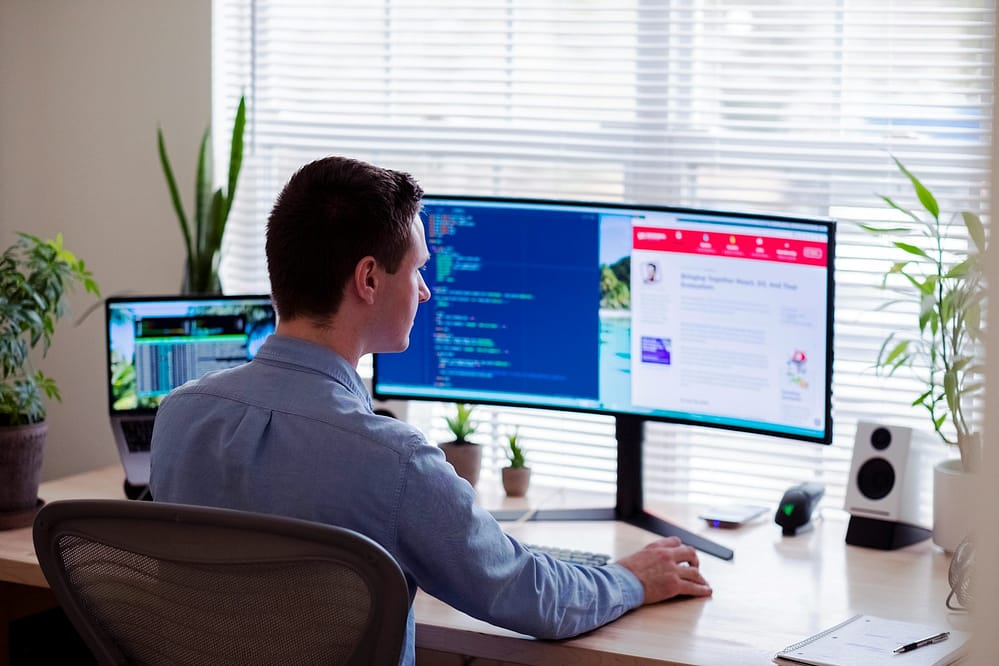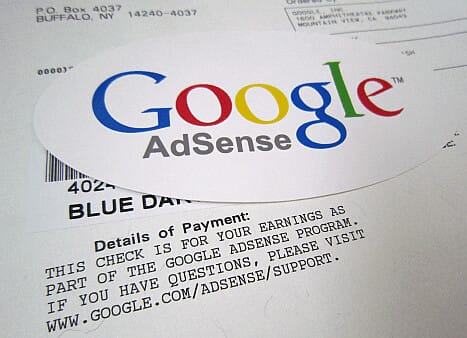Your Digital Shopfront: Why Every Nigerian SME Needs a Website (And How to Get Started Without Breaking the Bank)
Table of Contents
Executive Summary: It’s Time to Stop Running on ‘Word-of-Mouth’
Let’s be real, running a small or medium-sized business (SME) in Nigeria is a non-stop hustle. You’re juggling NEPA, managing logistics, and facing tough competition every single day. In all this chaos, it’s easy to think that if you just hustle hard in your local market, you’ll be fine. But that idea is completely outdated.
Here’s the simple truth: In today’s digital world, a website isn’t some fancy extra; it’s the foundation of your business. It’s the difference between being a local stall and a national brand. We’re going to break down why you need one and give you a simple, cheap blueprint to get started. Think of this as your guide to getting a 24/7 salesperson who never asks for a salary.
I. Forget the Street Corner: The Nigerian Customer Has Gone Online
We used to rely on going to the market, asking a neighbor, or waiting for a recommendation. But things have changed. Millions of Nigerians now have mobile phones and affordable data, and their first stop for almost anything—from a new tailor to a reliable plumber—is Google.
The Invisible Market Share: Who’s Searching for You Right Now?
Imagine you run a fantastic catering service in Port Harcourt. A busy professional in the same city is on their phone, searching Google for “best event caterers in Port Harcourt.”
If you don’t have a website, guess what? You’re invisible. The customer will find your competitor who had the sense to put their menu and phone number online.
This process is called Search Intent, and it’s the golden ticket to modern commerce. By lacking an online presence, you’re not just losing one customer; you’re handing over an endless stream of potential income to someone else. The market battle today isn’t fought on the street; it’s fought in the search results.
Your Social Media Page Isn’t Enough—You Need Your Own Home
You might be thinking, “But I have an amazing Instagram page!” And that’s great! Social media is a powerful tool, but it comes with a massive risk: you don’t own it.
If Instagram suddenly bans your account, changes its algorithm to kill your reach, or simply goes down for a day, your entire digital shop disappears. All your customers, all your content—gone.
Your website, however, is your digital land. It’s an owned asset where you make the rules. You control the look, the contact details, the data you collect, and, most importantly, you ensure your business remains open, no matter what happens to Mark Zuckerberg’s servers. It gives you ultimate digital sovereignty.
II. The Core Benefits: Why a Website is Your Best Employee
A functional website does more than just sell things; it acts as a strategic shield and a growth engine for your entire business.
A. Instant Trust and Serious Credibility
In Nigeria, we often judge a business by how serious they look. An email address like [email protected] is fine, but a professional domain email like [email protected] and a sharp-looking website immediately signal maturity and stability.
If you’re pitching a corporate contract or dealing with an international buyer, they will check for your website. It’s your official portfolio, your directory, and a sign that you’re a legitimate institution, not just a temporary hustle. Trust is the currency of commerce, and a website prints it for you.
B. The 24/7/365 Sales Engine That Never Complains
Imagine a salesperson who never needs a break, never gets stuck in Lagos traffic, and always has the exact, correct answer for every customer. That’s your website.
- Always Selling: It collects leads through contact forms, even at 3 AM.
- Always Informing: It clearly lists prices, services, and policies, reducing the time your staff spends answering basic questions.
- Breaking Borders: A boutique in Kano can instantly take an order from a customer in Abuja, Canada, or China. Your website transforms a local business into a potentially global one.
C. Advanced Marketing and Data Superpowers
Social media insights are limited, but your own website, when connected to simple tools like Google Analytics, gives you incredible data superpowers.
- Know Your Customer: You can see exactly where people are clicking, which products are the most popular, where your visitors are located, and what brings them to your site. This allows you to make smart, data-driven decisions.
- Smart Advertising: A website allows you to run powerful campaigns like Retargeting—showing ads only to people who already visited your site—which is one of the most effective ways to convert a browser into a buyer.
III. The Real Talk on Cost: It’s Cheaper Than Your Phone
The biggest hurdle for Nigerian SMEs is the myth that a website costs millions. This is a profound economic miscalculation. The true cost is incredibly low, especially when compared to what you spend on physical rent or even a high-end phone.
A. The Minimal Cost Breakdown
You don’t need to hire a team of foreign coders. The cost of entry is minimal:
- Domain Name: This is your address (
.com.ng). It’s typically very cheap, often less than the price of a cinema ticket for the entire year. - Web Hosting: Think of this as renting a small, secure space on the internet for your files. Nigerian hosting companies offer robust shared plans for less than the cost of a good lunch, sometimes as low as ₦1,500 per month.
- The Software: The great news is that powerful tools like WordPress, which runs over 40% of the internet, are completely free (open-source). You don’t pay a dime for the basic software itself.
B. DIY or Hire Local: Two Affordable Paths
- Do-It-Yourself (DIY): If you can navigate Facebook, you can manage a simple WordPress site. Platforms like Wix, Squarespace, and WordPress with drag-and-drop builders (like Elementor) make it incredibly easy to set up a professional site without touching a single line of code.
- Outsource Locally: If you’re too busy, Nigeria has thousands of talented freelance web developers. You can get a solid, professional WordPress starter site built for a one-time fee that’s often less than ₦100,000. It’s a foundational asset that outlives any phone you buy.
IV. Your Simple Blueprint for Affordable Digital Deployment
Getting online doesn’t require “arcane programming languages.” It requires following these three clear steps.
Step 1: Secure Your Digital Identity and Location
- The Name: Choose a domain name that is short, easy to remember, and relevant to your brand. Go for the .com.ng extension first for that strong local identity and affordability.
- The Landlord: Pick a reliable Nigerian hosting provider (they understand local infrastructure issues). Make sure your plan includes a free SSL Certificate—this is what puts the “lock” icon next to your web address and tells Google (and your customers) that your site is secure.
Step 2: Build with Free, Fast Tools
- Install WordPress: Most good hosts offer a “one-click install” button. You literally just click it, and WordPress is installed.
- Choose a Fast Theme: Use a free, high-performance theme like Astra, GeneratePress, or Neve. They look clean, they load quickly, and they are designed to look fantastic on mobile phones (where most Nigerians browse).
Step 3: Add the Core Content and Payment Systems
- The Essentials: Make sure you have the four non-negotiable pages: Home, About Us (tell your story!), Products/Services, and Contact Us (with your address, phone, and hours).
- Integrate Payment: Seamlessly connect local payment gateways like Paystack or Flutterwave. This is huge! It moves you past the stressful “send-me-proof-of-transfer-via-WhatsApp” headache and makes you look 100% professional.
- Optimize Images: Compress all your photos. Slow loading speeds kill sales—if your site takes more than 3 seconds to load, your customer is gone.
V. Post-Launch Strategy: Getting Found with Local SEO
Having a website is great, but getting people to find it is where the real money is. This is all about Search Engine Optimization (SEO)—making Google love your site.
A. Mastering Local Search Visibility
Since you are a Nigerian SME, your focus must be on Local SEO—getting found by people in your city or neighborhood.
- Google My Business (GMB): This is non-negotiable! Set up and verify a Google My Business profile. This ensures you show up on Google Maps and in the local search results when people look for “barbers near me” or “best tailor in Ikeja.”
- Use Local Keywords: Don’t just say “Plumber.” Say “Reliable Emergency Plumber in Ibadan.” Always embed your target locations—Lagos Island, Abuja FCT, Port Harcourt, etc.—into your service descriptions and headings.
B. Be the Expert: The Power of Content
Turn your website into an authority by adding a simple Blog or Knowledge Base. Use this space to answer your customers’ common questions.
- A fashion designer could write: “5 Ways to Spot Counterfeit Ankara Fabric.”
- A phone repair shop could write: “Why Your Phone Battery Drains Fast in Lagos Humidity.”
This high-quality, relevant content drives free, organic traffic to your site, making you the trusted expert in your field.
VI. Critical Errors: Mistakes That Kill SME Websites
Don’t let these common pitfalls derail your digital journey:
| Common Mistake | Consequence | Simple Fix |
| Outdated Content | Looks unprofessional; customers assume you are out of business. | Schedule a quarterly review to update prices, photos, and contact info. |
| Ignoring Mobile View | Most of your visitors are on phones! A bad mobile experience drives them away. | Always check how your site looks on a phone before you publish anything. |
| Copy-Pasting Text | Google will punish you for plagiarism, destroying your search ranking and credibility. | Always write your own product descriptions and ‘About Us’ story. |
| No Clear Call-to-Action (CTA) | Customers arrive but don’t know what to do next. | Use big, clear buttons: “SHOP NOW,” “BOOK A CONSULTATION,” or “CALL US.” |
| Too Slow to Load | Visitors leave quickly, increasing your bounce rate and losing sales. | Optimize/compress your images and use a lightweight, fast theme. |
Conclusion: Stop Waiting, Start Selling
The digital revolution isn’t coming to Nigeria—it’s already here. Every moment you spend without a website is a moment a competitor is taking your potential customer.
A website is the most scalable, affordable, and robust solution for growth in the challenging Nigerian market. It transforms your local hustle into a professional, always-on digital flagship. The old rules of commerce no longer apply.
The time for thinking is over. The time for digital implementation is now. While you’re still considering, your competitors are making sales in their sleep.
Quick-Fire Q&A: Addressing Your Concerns
Q1: What’s the cheapest way to start?
A: Get a cheap .com.ng domain, buy the most basic shared hosting plan, and use the free WordPress software and a free theme. You can be online for under ₦20,000 for the first year.
Q2: Should I use Naira or USD for pricing?
A: Stick to the Naira (₦) as the default for your Nigerian customer base. This makes transactions familiar and seamless with local payment gateways like Paystack.
Q3: Do I need a tech degree to manage the site?
A: Not at all. Modern platforms like WordPress are designed for regular people. If you can handle WhatsApp and Facebook, you can manage basic updates on your own site.
Q4: Is a website really safer than social media?
A: Yes. Your website is an asset you own. Your social media page is rented space that can be taken away without notice. A website gives you long-term stability and control.
Hi, I’m Prince Stephen Mordi, the mind behind Voob.com.ng. I write simple, beginner-friendly guides on tech, blogging, and making money online. My goal is to help you navigate the internet without headaches—because tech doesn’t have to be complicated!





